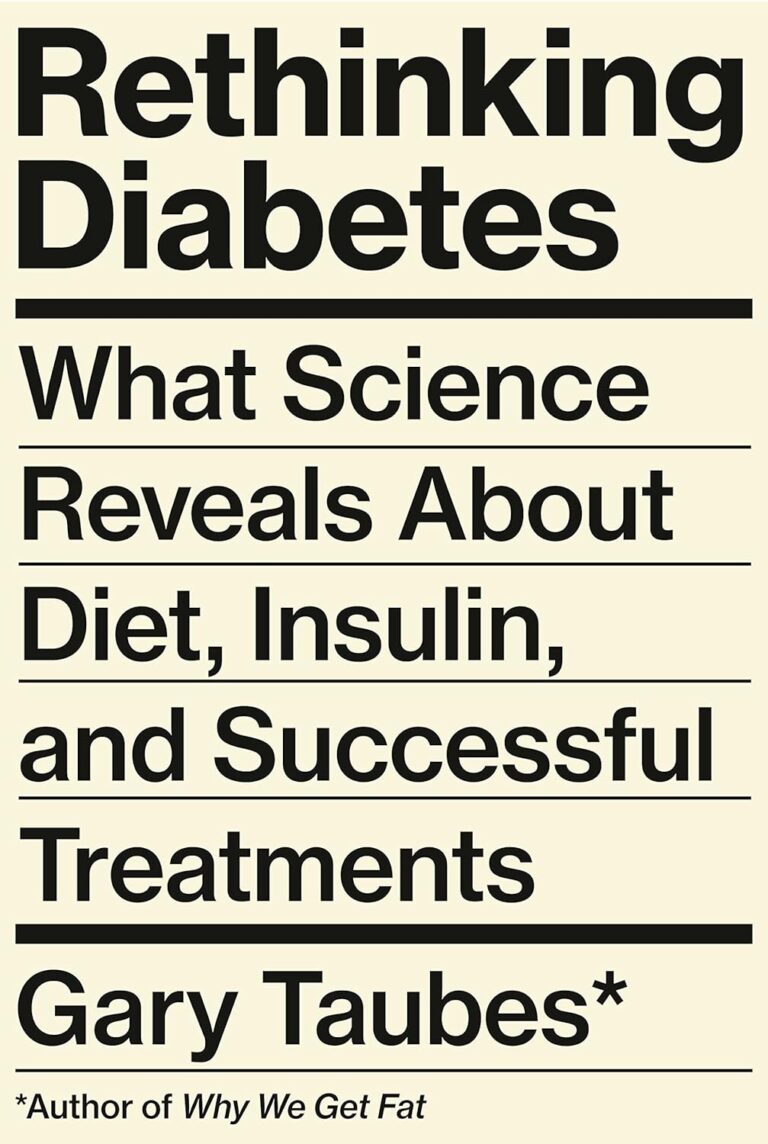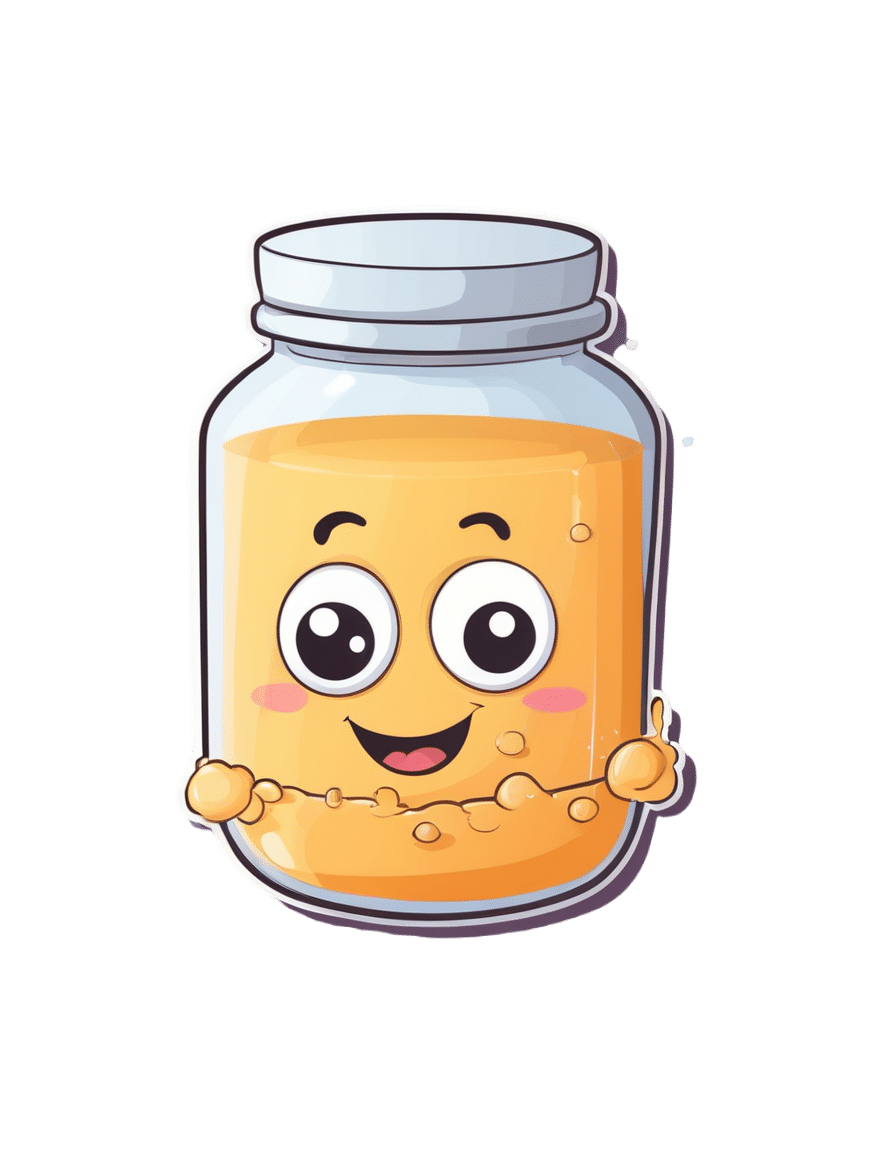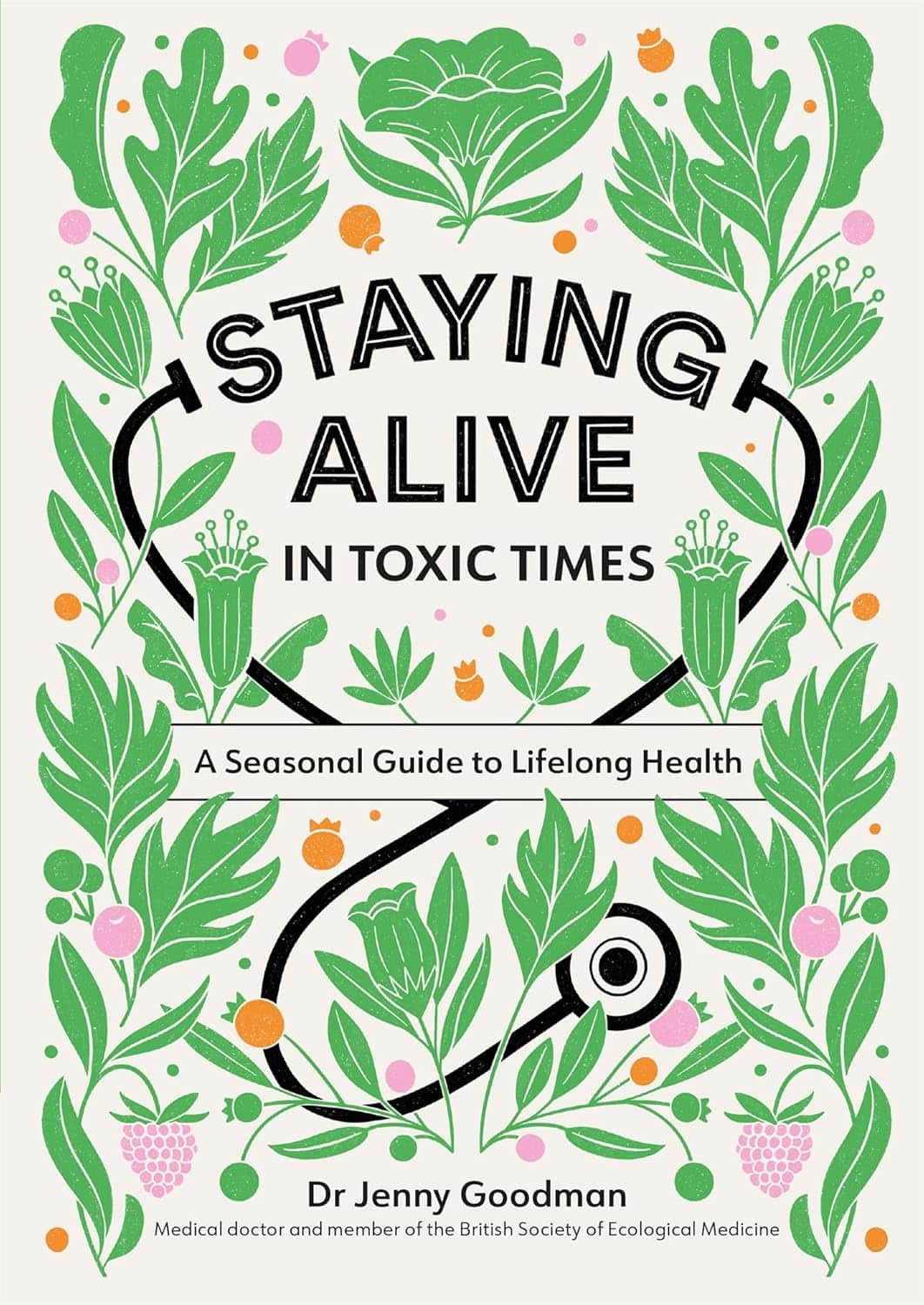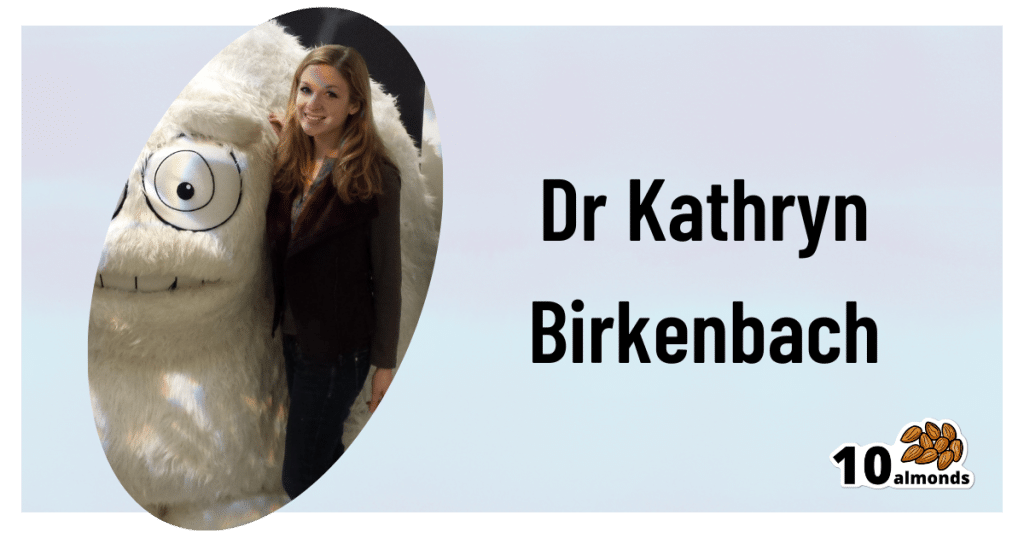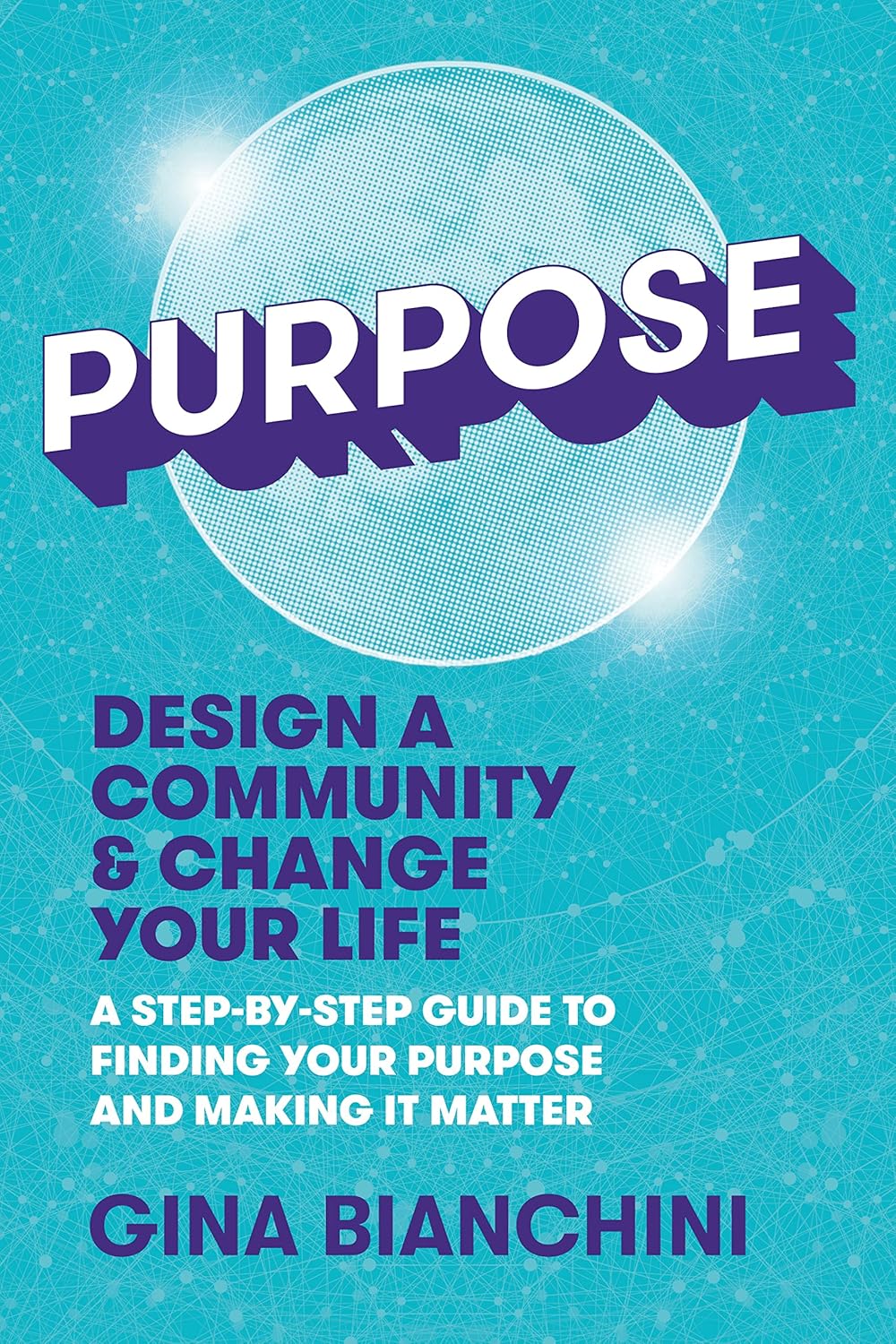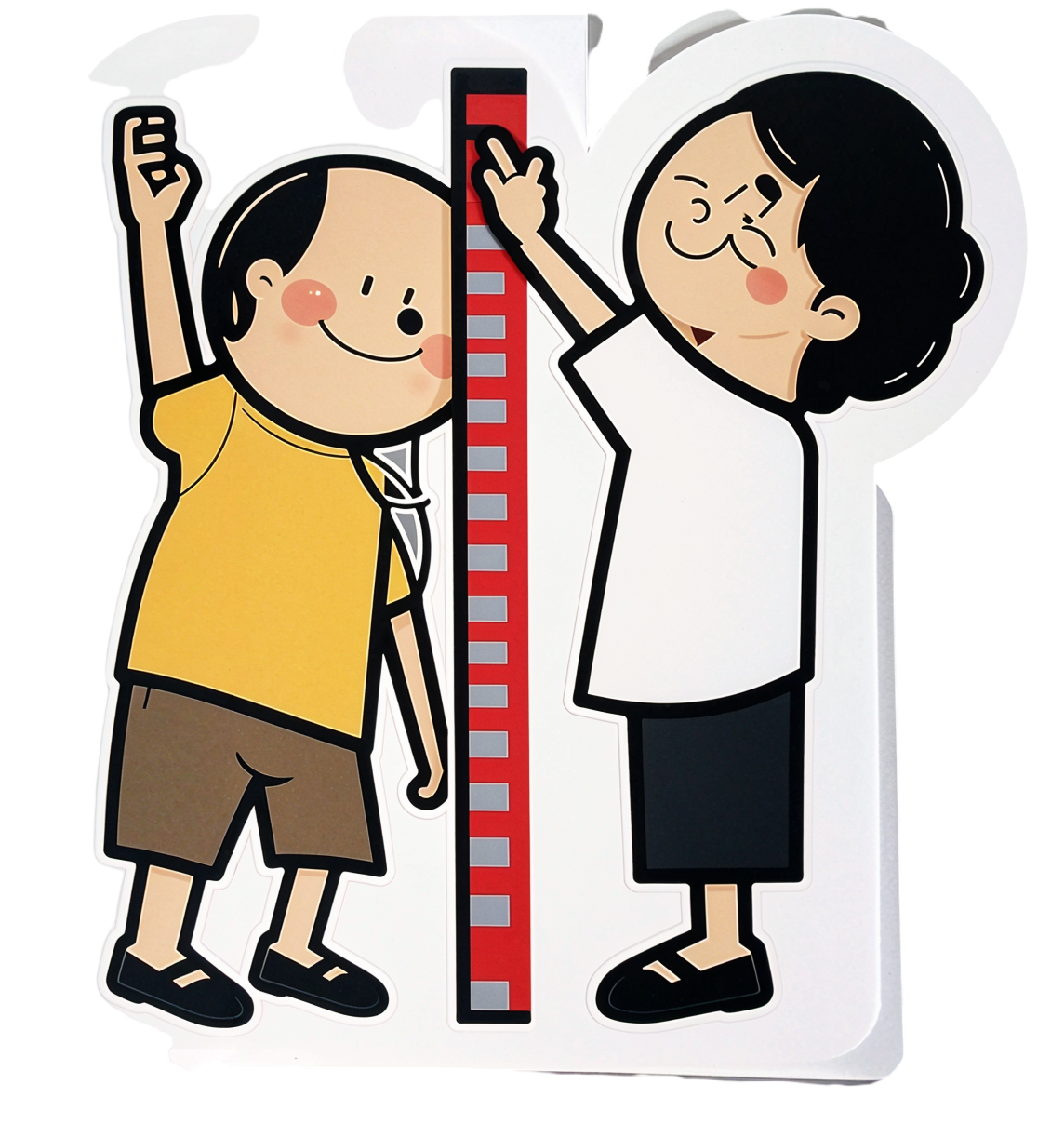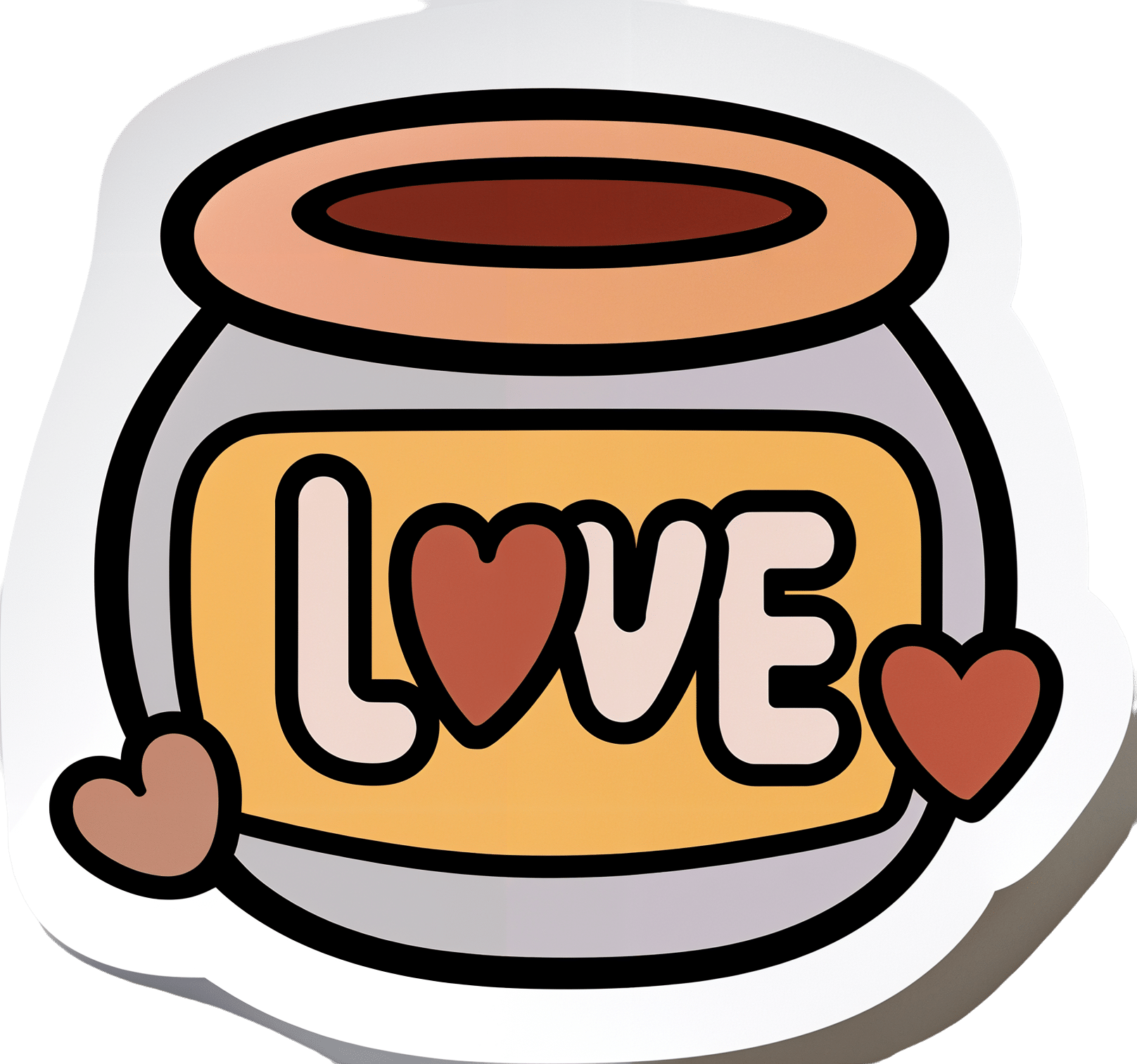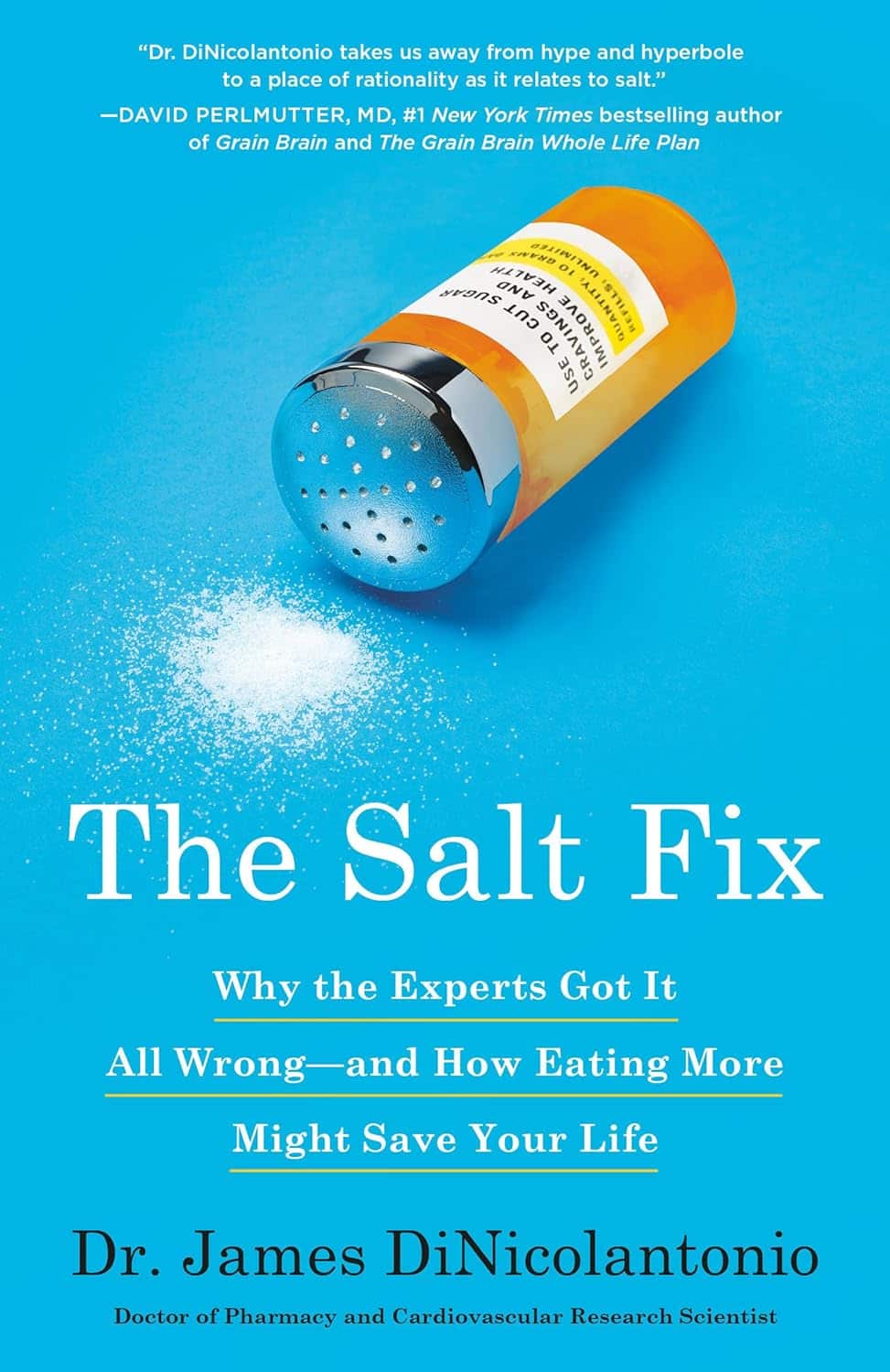
The Salt Fix – by Dr. James DiNicolantonio
10almonds is reader-supported. We may, at no cost to you, receive a portion of sales if you purchase a product through a link in this article.
This book has a bold premise: high salt consumption is not, as global scientific consensus holds, a serious health risk, but rather, as the title suggests, a health fix.
Dr. DiNicolantonio, a pharmacist, explains how “our ancestors crawled out of the sea millions of years ago and we still crave that salt”, giving this as a reason why we should consume salt ad libitum, aiming for 8–10g per day, and thereafter a fair portion of the book is given over to discussing how many health conditions are caused/exacerbated by sugar, and that therefore we have demonized the wrong white crystal (scientific consensus is that there are many white crystals that can cause us harm).
Indeed, sugar can be a big health problem, but reading it at such length felt a lot like when all a politician can talk about is how their political rival is worse.
A lot of the studies the author cites to support the idea of healthy higher salt consumption rates were on non-human animals, and it’s always a lottery as to whether those results translate to humans or not. Also, many of the studies he’s citing are old and have methodological flaws, while others we could not find when we looked them up.
One of the sources cited is “my friend Jose tried this and it worked for him”.
Bottom line: sodium is an essential mineral that we do need to live, but we are not convinced that this book’s ideas have scientific merit. But are they well-argued? Also no.
Click here to check out The Salt Fix for yourself! It’s a fascinating book.
(Usually, if we do not approve of a book, we simply do not review it. We like to keep things positive. However, this one came up in Q&A, so it seemed appropriate to share our review. Also, the occasional negative review may reassure you, dear readers, that when we praise a book, we mean it)
Don’t Forget…
Did you arrive here from our newsletter? Don’t forget to return to the email to continue learning!
Recommended
Learn to Age Gracefully
Join the 98k+ American women taking control of their health & aging with our 100% free (and fun!) daily emails:
-
Coenzyme Q10 From Foods & Supplements
10almonds is reader-supported. We may, at no cost to you, receive a portion of sales if you purchase a product through a link in this article.
Coenzyme Q10 and the difference it makes
Coenzyme Q10, often abbreviated to CoQ10, is a popular supplement, and is often one of the more expensive supplements that’s commonly found on supermarket shelves as opposed to having to go to more specialist stores or looking online.
What is it?
It’s a compound naturally made in the human body and stored in mitochondria. Now, everyone remembers the main job of mitochondria (producing energy), but they also protect cells from oxidative stress, among other things. In other words, aging.
Like many things, CoQ10 production slows as we age. So after a certain age, often around 45 but lifestyle factors can push it either way, it can start to make sense to supplement.
Does it work?
The short answer is “yes”, though we’ll do a quick breakdown of some main benefits, and studies for such, before moving on.
First, do bear in mind that CoQ10 comes in two main forms, ubiquinol and ubiquinone.
Ubiquinol is much more easily-used by the body, so that’s the one you want. Here be science:
What is it good for?
Benefits include:
- Against aging
- Against skin cancer
- Against breast cancer
- Against prostate cancer
- Against heart failure
- Against obesity
- Against diabetes
- Against Alzheimer’s
- Against Parkinson’s
Can we get it from foods?
Yes, and it’s equally well-absorbed through foods or supplementation, so feel free to go with whichever is more convenient for you.
Read: Intestinal absorption of coenzyme Q10 administered in a meal or as capsules to healthy subjects
If you do want to get it from food, you can get it from many places:
- Organ meats: the top source, though many don’t want to eat them, either because they don’t like them or some of us just don’t eat meat. If you do, though, top choices include the heart, liver, and kidneys.
- Fatty fish: sardines are up top, along with mackerel, herring, and trout
- Vegetables: leafy greens, and cruciferous vegetables e.g. cauliflower, broccoli, sprouts
- Legumes: for example soy, lentils, peanuts
- Nuts and seeds: pistachios come up top; sesame seeds are great too
- Fruit: strawberries come up top; oranges are great too
If supplementing, how much is good?
Most studies have used doses in the 100mg–200mg (per day) range.
However, it’s also been found to be safe at 1200mg (per day), for example in this high-quality study that found that higher doses resulted in greater benefit, in patients with early Parkinson’s Disease:
Effects of coenzyme Q10 in early Parkinson disease: evidence of slowing of the functional decline
Wondering where you can get it?
We don’t sell it (or anything else for that matter), and you can probably find it in your local supermarket or health food store. However, if you’d like to buy it online, here’s an example product on Amazon
Share This Post
-
Staying Alive – by Dr. Jenny Goodman
10almonds is reader-supported. We may, at no cost to you, receive a portion of sales if you purchase a product through a link in this article.
A lot of “healthy long life” books are science-heavy to the point of being quite challenging to read—they become excellent reference sources, but not exactly “curl up in the armchair” books.
Dr. Goodman writes in a much more reader-friendly fashion, casual yet clear.
She kicks off with season-specific advice. What does that mean? Basically, our bodies need different things at different times of year, and we face different challenges to good health. We may ignore such at our peril!
After a chapter for each of the four seasons (assuming a temperate Northern Hemisphere climate), she goes on to cover the seasons of our life. Once again, our bodies need different things at different times in our life, and we again face different challenges to good health!
There’s plenty of “advice for all seasons”, too. Nutritional dos and don’t, and perennial health hazards to avoid.
As a caveat, she does also hold some unscientific views that may be skipped over. These range from “plant-based diets aren’t sustainable” to “this detox will get rid of heavy metals”. However, the value contained in the rest of the book is more than sufficient to persuade us to overlook those personal quirks.
In particular, she offers very good advice on overcoming cravings (and distinguishing them from genuine nutritional cravings), and taking care of our “trillions of tiny companions” (beneficial gut microbiota) without nurturing Candida and other less helpful gut flora and fauna.
In short, a fine lot of information in a very readable format.
Share This Post
-
Screaming at Screens?
10almonds is reader-supported. We may, at no cost to you, receive a portion of sales if you purchase a product through a link in this article.
I Screen, You Screen, We All Screen For…?
Dr. Kathryn Birkenbach is a postdoctoral research fellow in the Department of Neuroscience at Columbia University, and Manager of Research at Early Medical in New York.
Kathryn has things to tell us about kids’ neurological development, and screen time spent with electronic devices including phones, tablets, computers, and TVs.
From the 1960s criticism of “the gogglebox” to the modern-day critiques of “iPad babies” as a watchword of parental neglect, there’s plenty people can say against screen time, but Dr. Birkenbach tells us the that the reality is more nuanced:
Context Is Key
On a positive note”: consistent exposure to age-appropriate educational material results in quicker language acquisition than media that’s purely for entertainment purposes, or not age-appropriate.
Contrary to popular belief, children do not in fact learn by osmosis!
Interaction Is Far More Valuable Than Inaction
Kathryn advises that while adults tend to quite easily grasp things from instructional videos, the same does not go for small children.
This means that a lot of educational programming can be beneficial to small children if and only if there is an adult with them to help translate the visual into the practical!
There’s a story that does the rounds on the Internet: a young boy wanted to train his puppy, but didn’t know how. He asked, and was told “search for puppy training on YouTube”. His parents came back later and found him with his iPad, earnestly showing the training videos to the puppy.
We can laugh at the child’s naïvety, knowing that’s not how it works and the puppy will not learn that way, so why make the same mistake in turn?
❝The phenomenon known as the “video deficit effect” can be overcome, when an on-screen guide interacts with the child or a parent is physically present and draws the child’s attention to relevant information.
In other words, interaction with others appears to enhance the perceived salience of on-screen information, unlocking a child’s ability to learn from a medium which would otherwise offer no real-world benefit.❞
Screens Can Supplement, But Can’t Replace, Live Learning & Play
Sci-fi may show us “education pods” in which children learn all they need to from their screen… but according to our most up-to-date science, Dr. Birkenbach says, that simply would not work at all.
Screen time without adult interactions will typically fail to provide small children any benefit.
There is one thing it’s good at, though… attracting and keeping attention.
Thus, even a mere background presence of a TV show in the room will tend to actively reduce the time a small child spends on other activities, including live learning and exploratory play.
The attention-grabbing abilities of TV shows don’t stop at children, though! Adult caregivers will also tend to engage in fewer interactions with their children… and the interactions will be shorter and of lower quality.
In Summary:
- Young children will tend not to learn from non-interactive screen time
- Interactive screen time, ideally with a caregiver, can be educational
- Interactive screen time, not with a carer, can be beneficial (but a weak substitute)
- Interactive screen time refers to shows such as Dora The Explorer, where Dora directly addresses the viewer and asks questions…But it’s reliant on the child caring to answer!
- It can also mean interactive educational apps, provided the child does consciously interact!
- Randomly pressing things is not conscious interaction! The key here is engaging with it intelligently and thoughtfully
- A screen will take a child’s time and attention away from non-screen things: that’s a genuine measurable loss to their development!
Absolute Bottom Line:
Screens can be of benefit to small children, if and only if the material is:
- Age-Appropriate
- Educational
- Interactive
If it’s missing one of those three, it’ll be of little to no benefit, and can even harm, as it reduces the time spent on more beneficial activities.
Share This Post
Related Posts
-
Purpose – by Gina Bianchini
10almonds is reader-supported. We may, at no cost to you, receive a portion of sales if you purchase a product through a link in this article.
To address the elephant in the room, this is not a rehash of Rick Warren’s best-selling “The Purpose-Driven Life”. Instead, this book is (in this reviewer’s opinion) a lot better. It’s a lot more comprehensive, and it doesn’t assume that what’s most important to the author will be what’s most important to you.
What’s it about, then? It’s about giving your passion (whatever it may be) the tools to have an enduring impact on the world. It recommends doing this by leveraging a technology that would once have been considered magic: social media.
Far from “grow your brand” business books, this one looks at what really matters the most to you. Nobody will look back on your life and say “what a profitable second quarter that was in such-a-year”. But if you do your thing well, people will look back and say:
- “he was a pillar of the community”
- “she raised that community around her”
- “they did so much for us”
- “finding my place in that community changed my life”
- …and so forth. Isn’t that something worth doing?
Bianchini takes the position of both “idealistic dreamer” and “realistic worker”.
Further, she blends the two beautifully, to give practical step-by-step instructions on how to give life to the community that you build.
Don’t Forget…
Did you arrive here from our newsletter? Don’t forget to return to the email to continue learning!
Learn to Age Gracefully
Join the 98k+ American women taking control of their health & aging with our 100% free (and fun!) daily emails:
-
Good Health From Head To Toe
10almonds is reader-supported. We may, at no cost to you, receive a portion of sales if you purchase a product through a link in this article.
It’s Q&A Day!
Have a question or a request? You can always hit “reply” to any of our emails, or use the feedback widget at the bottom!
This newsletter has been growing a lot lately, and so have the questions/requests, and we love that! In cases where we’ve already covered something, we might link to what we wrote before, but will always be happy to revisit any of our topics again in the future too—there’s always more to say!
As ever: if the question/request can be answered briefly, we’ll do it here in our Q&A Thursday edition. If not, we’ll make a main feature of it shortly afterwards!
So, no question/request too big or small
Q: I am now in the “aging” population. A great concern for me is Alzheimers. My father had it and I am so worried. What is the latest research on prevention?
Very important stuff! We wrote about this not long back:
- See: How To Reduce Your Alzheimer’s Risk
- See also: Brain Food? The Eyes Have It!
(one good thing to note is that while Alzheimer’s has a genetic component, it doesn’t appear to be hereditary per se. Still, good to be on top of these things, and it’s never too early to start with preventive measures!)
Q: Foods that help build stronger bones and cut inflammation? Thank you!
We’ve got you…
For stronger bones / To cut inflammation
That “stronger bones” article is about the benefits of collagen supplementation for bones, but there’s definitely more to say on the topic of stronger bones, so we’ll do a main feature on it sometime soon!
Q: Veganism, staying mentally sharp, best exercises for weight gain?
All great stuff! Let’s do a run-down:
- Veganism? As a health and productivity newsletter, we’ll only be focusing veganism’s health considerations, but it does crop up from time to time! For example:
- Which Plant Milk? (entirely about such)
- Plant vs Animal Protein (mostly about such)
- Making Friends With Your Gut (You Can Thank Us Later) (discusses one benefit of such)
- Staying mentally sharp? You might like the things-against-dementia pieces we linked to in the previous response!
- It’s also worth noting that some kinds of dementia, such as Alzheimer’s, can begin the neurodegenerative process 20 years before symptoms show, and can be influenced by lifestyle choices 20 years before that, so it’s definitely never too early be on top of these things!
- Best exercises for weight gain? We’ll do a main feature one of these days (filled with good science and evidence), but in few words meanwhile: core exercises, large muscle groups, heavy weights, few reps, build up slowly. Squats are King.
Q: I am interested in the following: Aging, Exercise, Diet, Relationships, Purpose, Lowering Stress
You’re going to love our Psychology Sunday editions of 10almonds! You might like some of these…
- Relationships: Seriously Useful Communication Skills!
- Purpose: Are You Flourishing? (There’s a Scale)
- Managing stress: Lower Your Cortisol! (Here’s Why & How)
- Also about managing stress: Sunday Stress-Buster
- Also applicable to stress: How To Set Your Anxiety Aside
Q: I’d like to know more about type 2 diabetic foot problems
You probably know that the “foot problems” thing has less to do with the feet and more to do with blood and nerves. So, why the feet?
The reason feet often get something like the worst of it, is because they are extremities, and in the case of blood sugars being too high for too long too often, they’re getting more damage as blood has to fight its way back up your body. Diabetic neuropathy happens when nerves are malnourished because the blood that should be keeping them healthy, is instead syrupy and sluggish.
We’ll definitely do a main feature sometime soon on keeping blood sugars healthy, for both types of diabetes plus pre-diabetes and just general advice for all.
In the meantime, here’s some very good advice on keeping your feet healthy in the context of diabetes. This one’s focussed on Type 1 Diabetes, but the advice goes for both:
! Don’t Forget…
Did you arrive here from our newsletter? Don’t forget to return to the email to continue learning!
Learn to Age Gracefully
Join the 98k+ American women taking control of their health & aging with our 100% free (and fun!) daily emails:
-
Oh, Honey
10almonds is reader-supported. We may, at no cost to you, receive a portion of sales if you purchase a product through a link in this article.
The Bee’s Knees?
If you’d like to pre-empt that runny nose, some say that local honey is the answer. The rationale is that bees visiting the local sources of pollen and making honey will introduce the same allergens to you in a non allergy-inducing fashion (the honey). The result? Inoculation against the allergens in question.
But does it work?
Researching this, we found a lot of articles saying there was no science to back it up.
And then! We found one solitary study from 2013, and the title was promising:
But we don’t stop at titles; that’s not the kind of newsletter we are. We pride ourselves on giving good information!
And it turned out, upon reading the method and the results, that:
- Both the control and test groups also took loratadine for the first 4 weeks of the study
- The test group additionally took 1g/kg bodyweight of honey, daily—so for example if you’re 165lb (75kg), that’s about 4 tablespoons per day
- The control group took the equivalent amount of honey-flavored syrup
- Both groups showed equal improvements by week 4
- The test group only showed continued improvements (over the control group) by week 8
The researchers concluded from this:
❝Honey ingestion at a high dose improves the overall and individual symptoms of AR, and it could serve as a complementary therapy for AR.❞
We at 10almonds concluded from this:
❝That’s a lot of honey to eat every day for months!❞
We couldn’t base an article on one study from a decade ago, though! Fortunately, we found a veritable honeypot of more recent research, in the form of this systematic review:
Read: The Potential Use Of Honey As A Remedy For Allergic Diseases
…which examines 13 key studies and 43 scientific papers over the course of 21 years. That’s more like it! This was the jumping-off point we needed into more useful knowledge.
We’re not going to cite all those here—we’re a health and productivity newsletter, not an academic journal of pharmacology, but we did sift through them so that you don’t have to, and:
The researchers (of that review) concluded:
❝Although there is limited evidence, some studies showed remarkable improvements against certain types of allergic illnesses and support that honey is an effective anti-allergic agent.❞
Our (10almonds team) further observations included:
- The research review notes that a lot of studies did not confirm which phytochemical compounds specifically are responsible for causing allergic reactions and/or alleviating such (so: didn’t always control for what we’d like to know, i.e. the mechanism of action)
- Some studies showed results radically different from the rest. The reviewers put this down to differences that were not controlled-for between studies, for example:
- Some studies used very different methods to others. There may be an important difference between a human eating a tablespoon of honey, and a rat having aerosolized honey shot up its nose, for instance. We put more weight to human studies than rat studies!
- Some kinds of honey (such as manuka) contain higher quantities of gallic acid which itself can relieve allergies by chemically inhibiting the release of histamine. In other words, never mind pollen-based inoculations… it’s literally an antihistamine.
- Certain honeys (such as tualang, manuka and gelam) contain higher quantities of quercetin. What’s quercetin? It’s a plant flavonoid that a recent study has shown significantly relieves symptoms of seasonal allergies. So again, it works, just not for the reason people say!
In summary:
The “inoculation by local honey” thing specifically may indeed remain “based on traditional use only” for now.
But! Honey as a remedy for allergies, especially manuka honey, has a growing body of scientific evidence behind it.
Bottom line:
If you like honey, go for it (manuka seems best)! It may well relieve your symptoms.
If you don’t, off-the-shelf antihistamines remain a perfectly respectable option.
Don’t Forget…
Did you arrive here from our newsletter? Don’t forget to return to the email to continue learning!
Learn to Age Gracefully
Join the 98k+ American women taking control of their health & aging with our 100% free (and fun!) daily emails:

